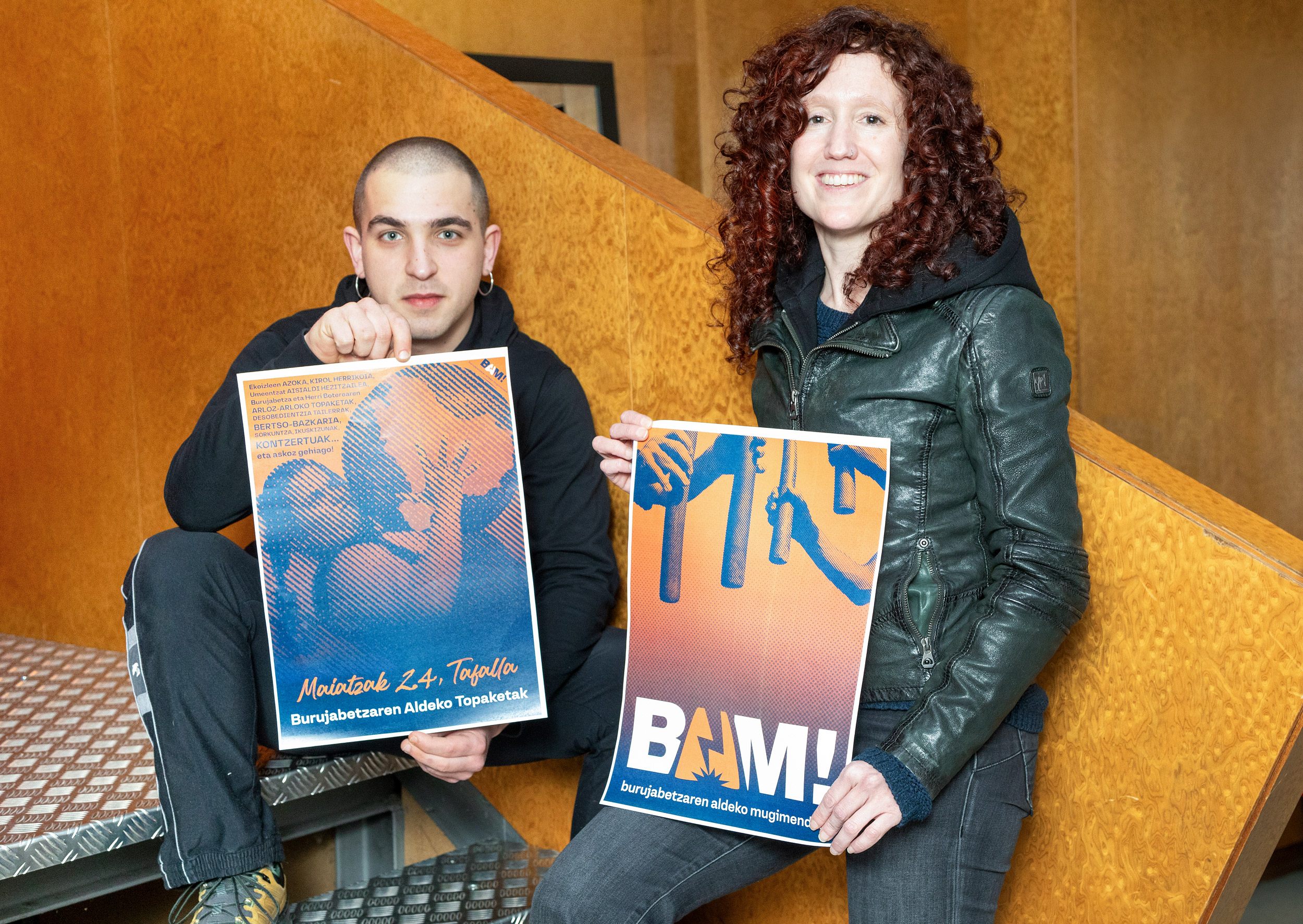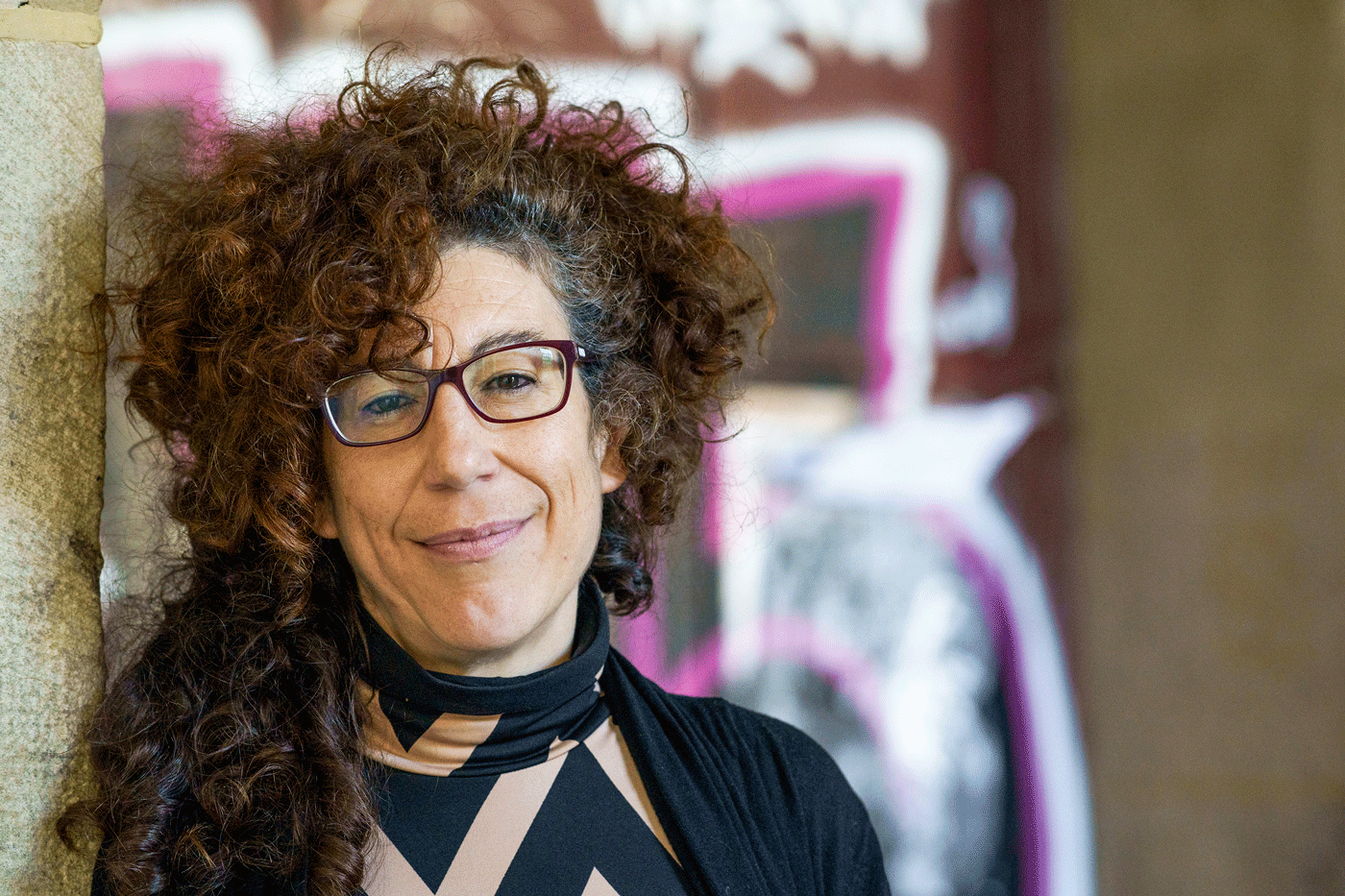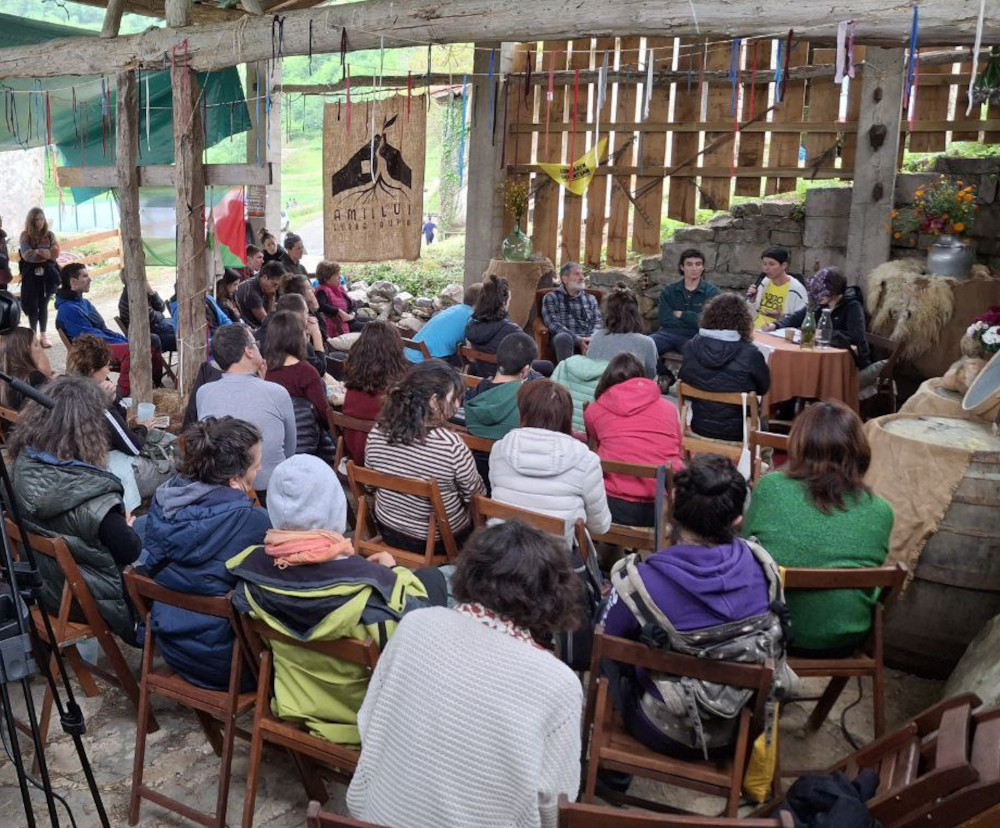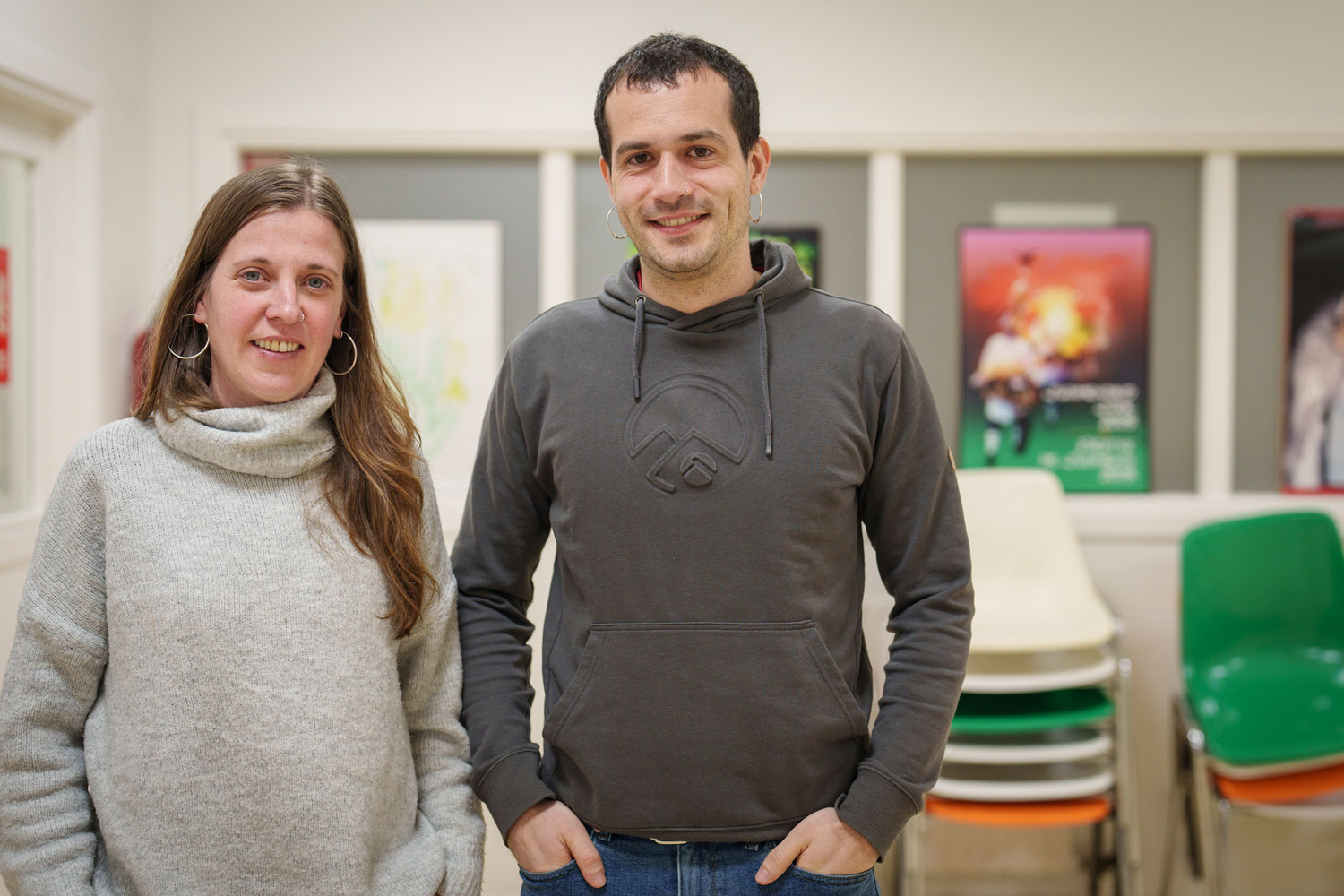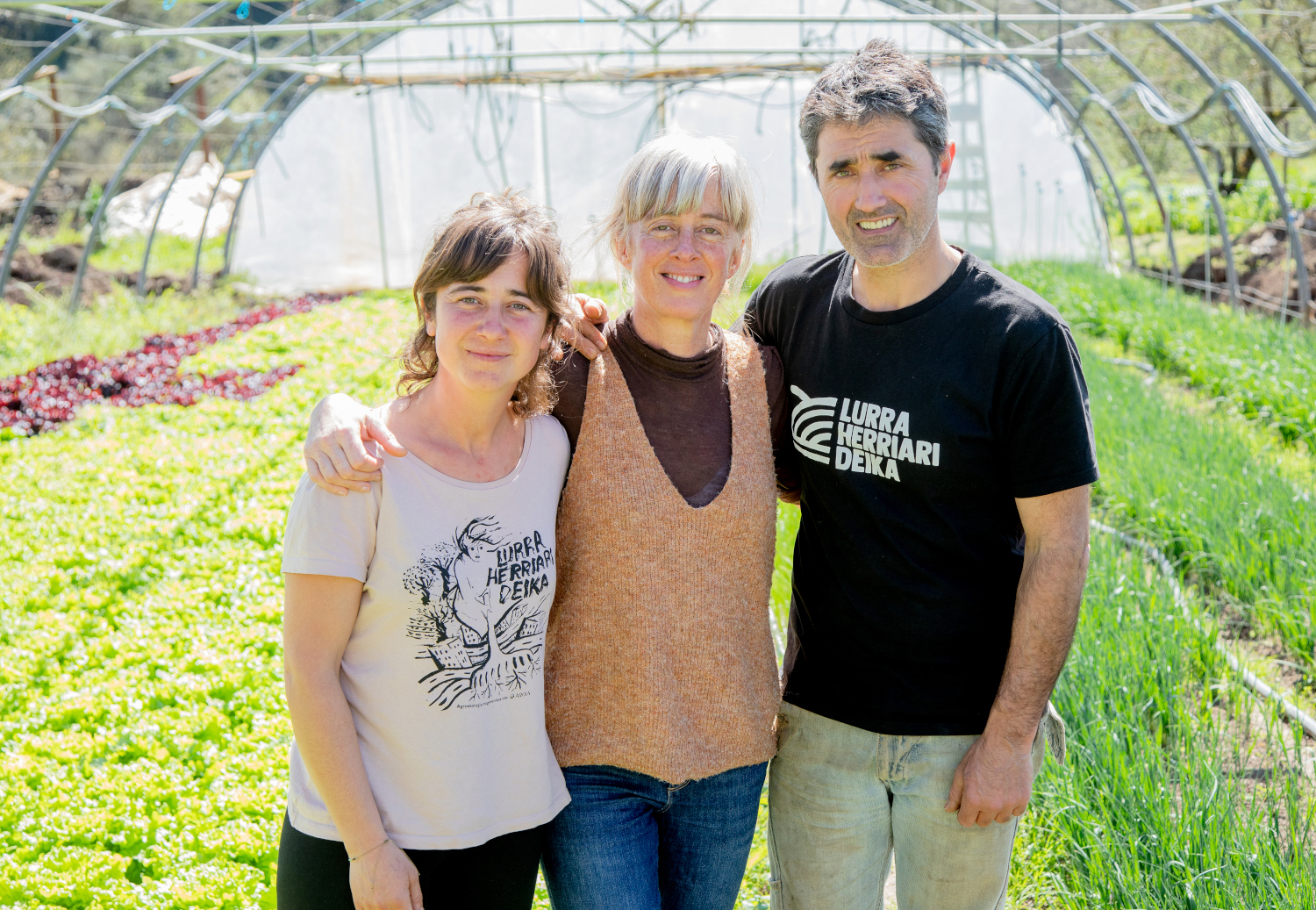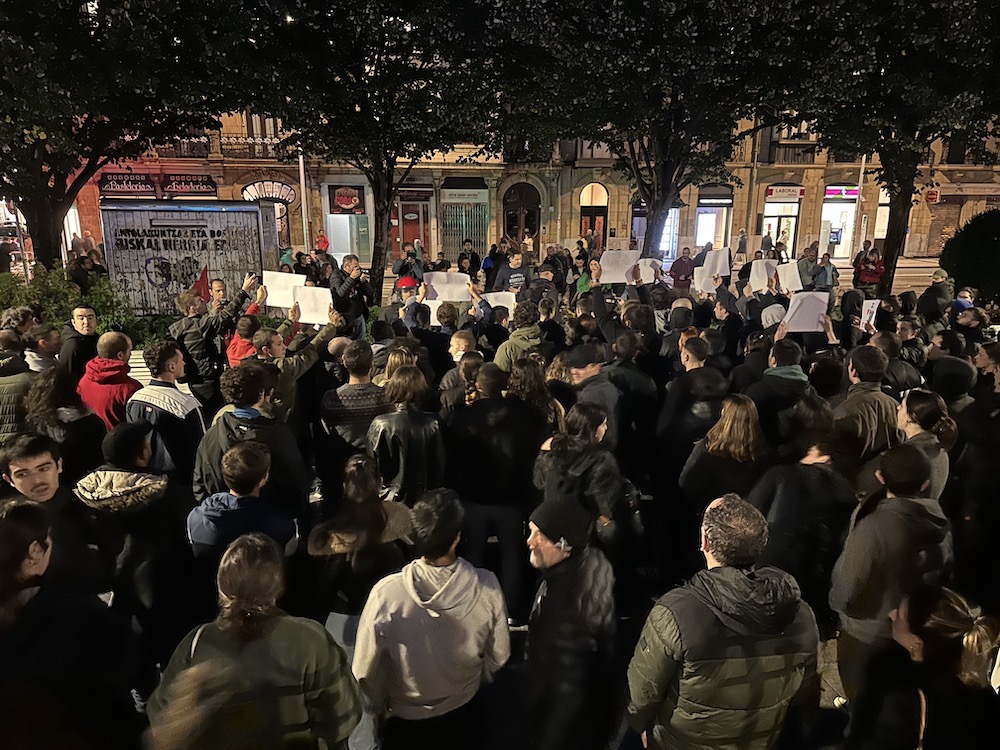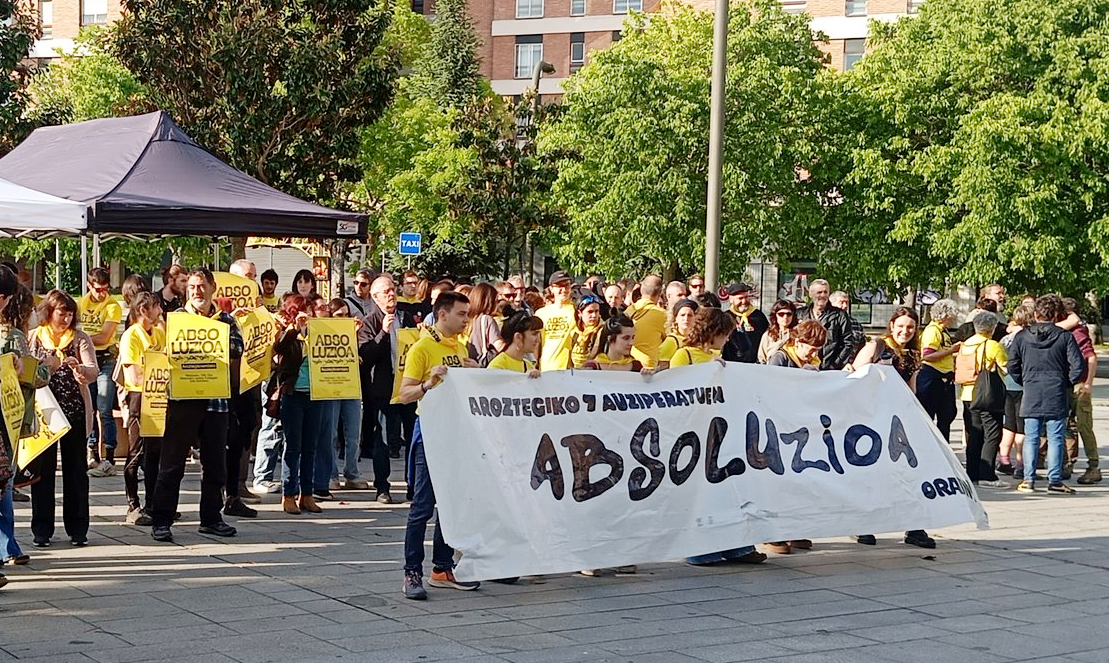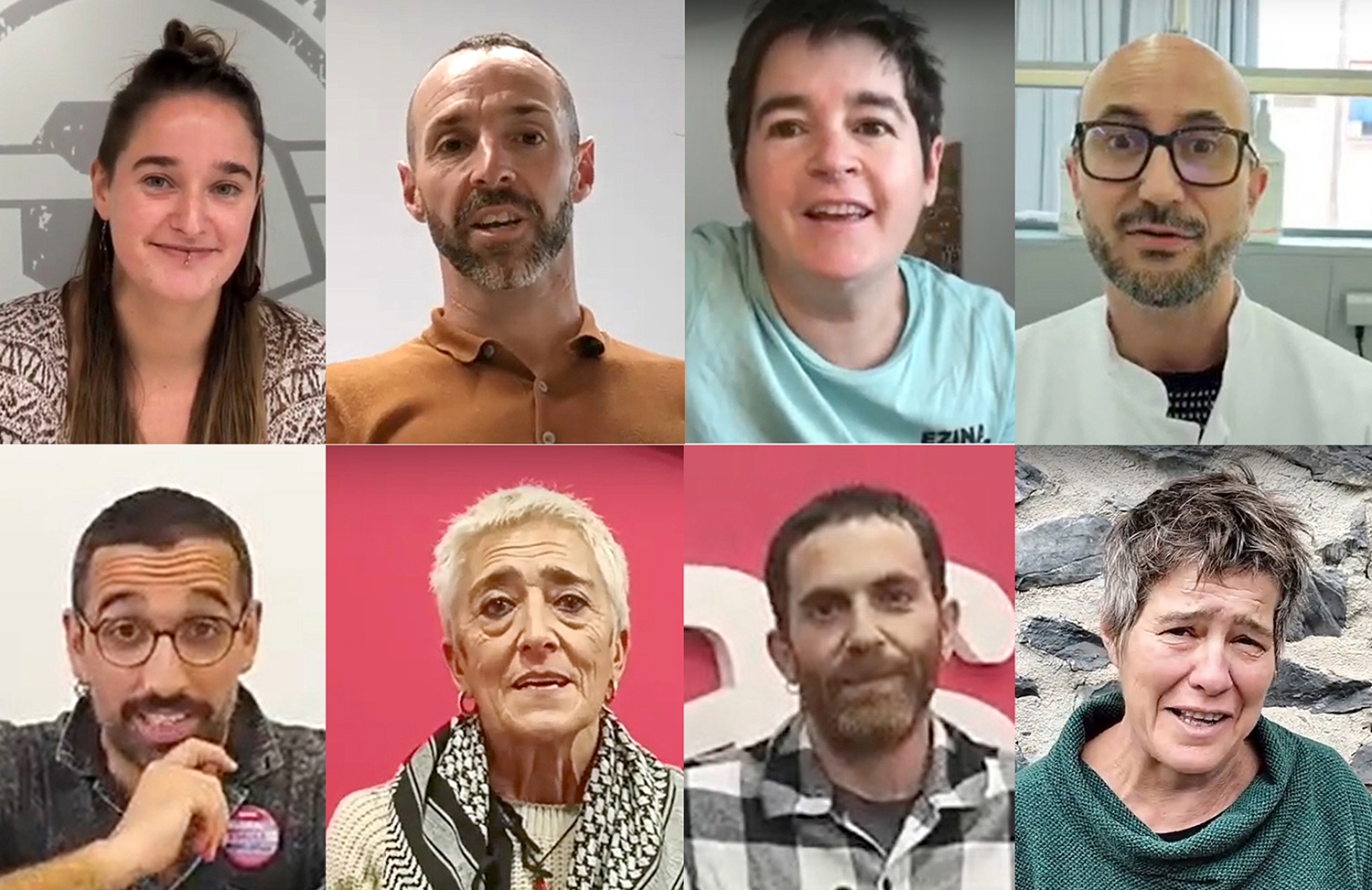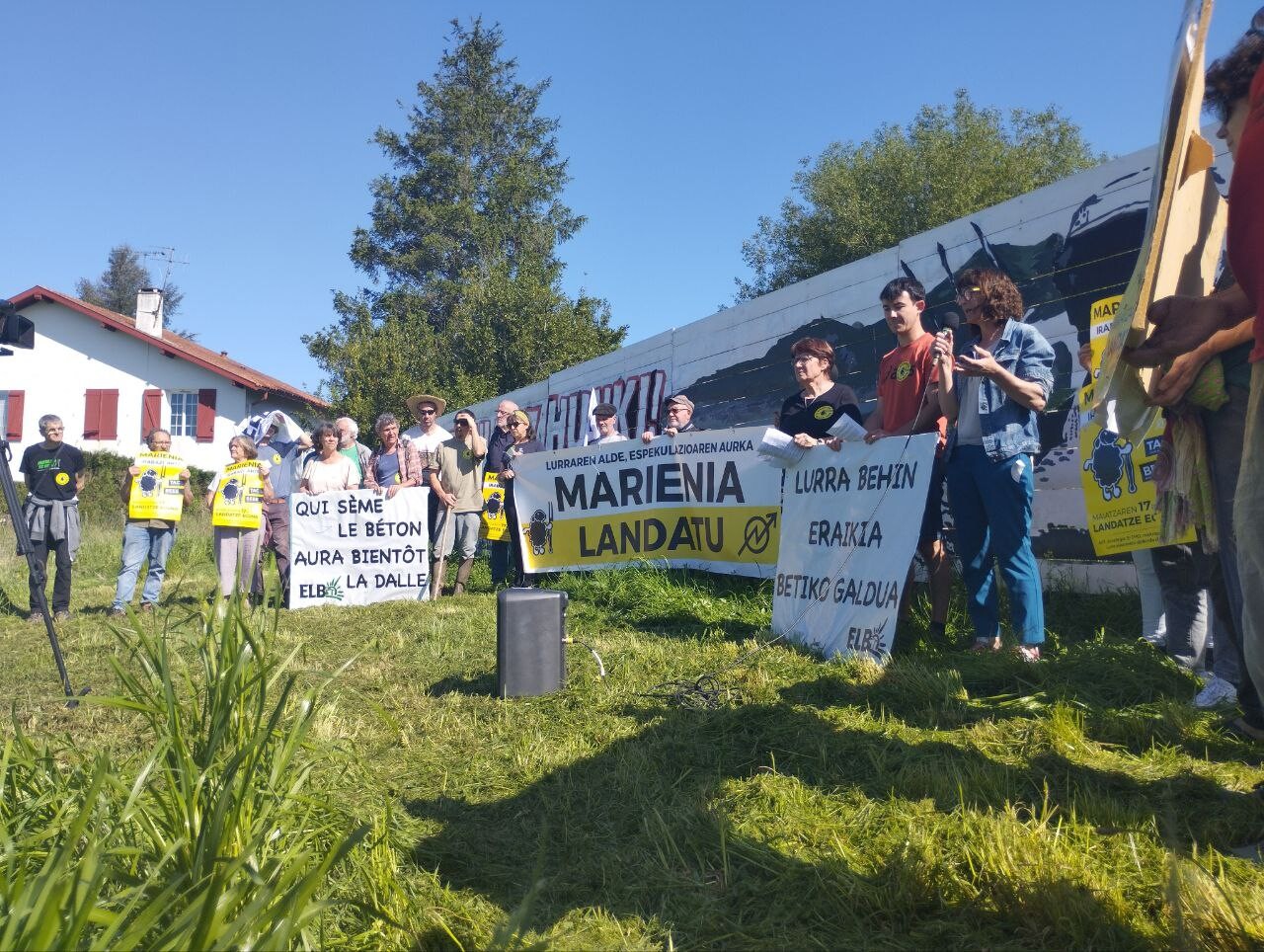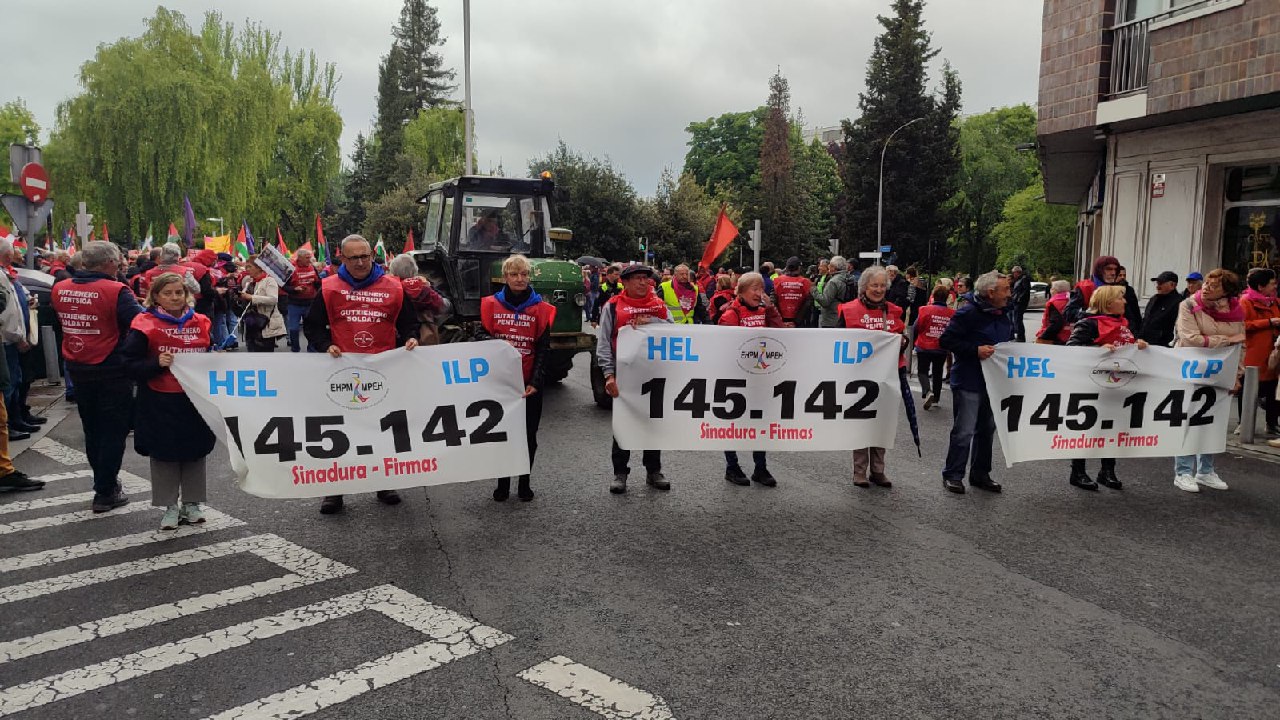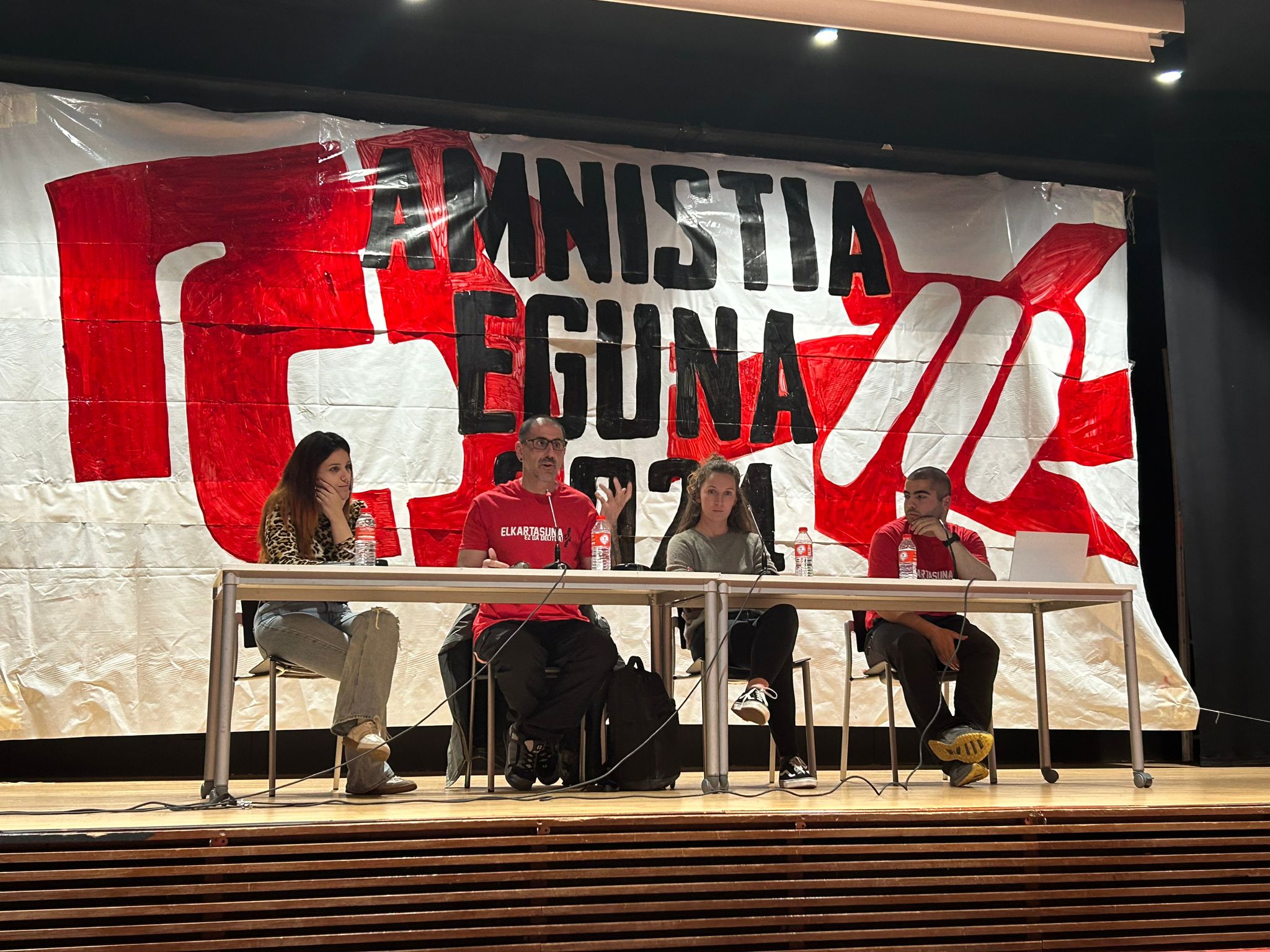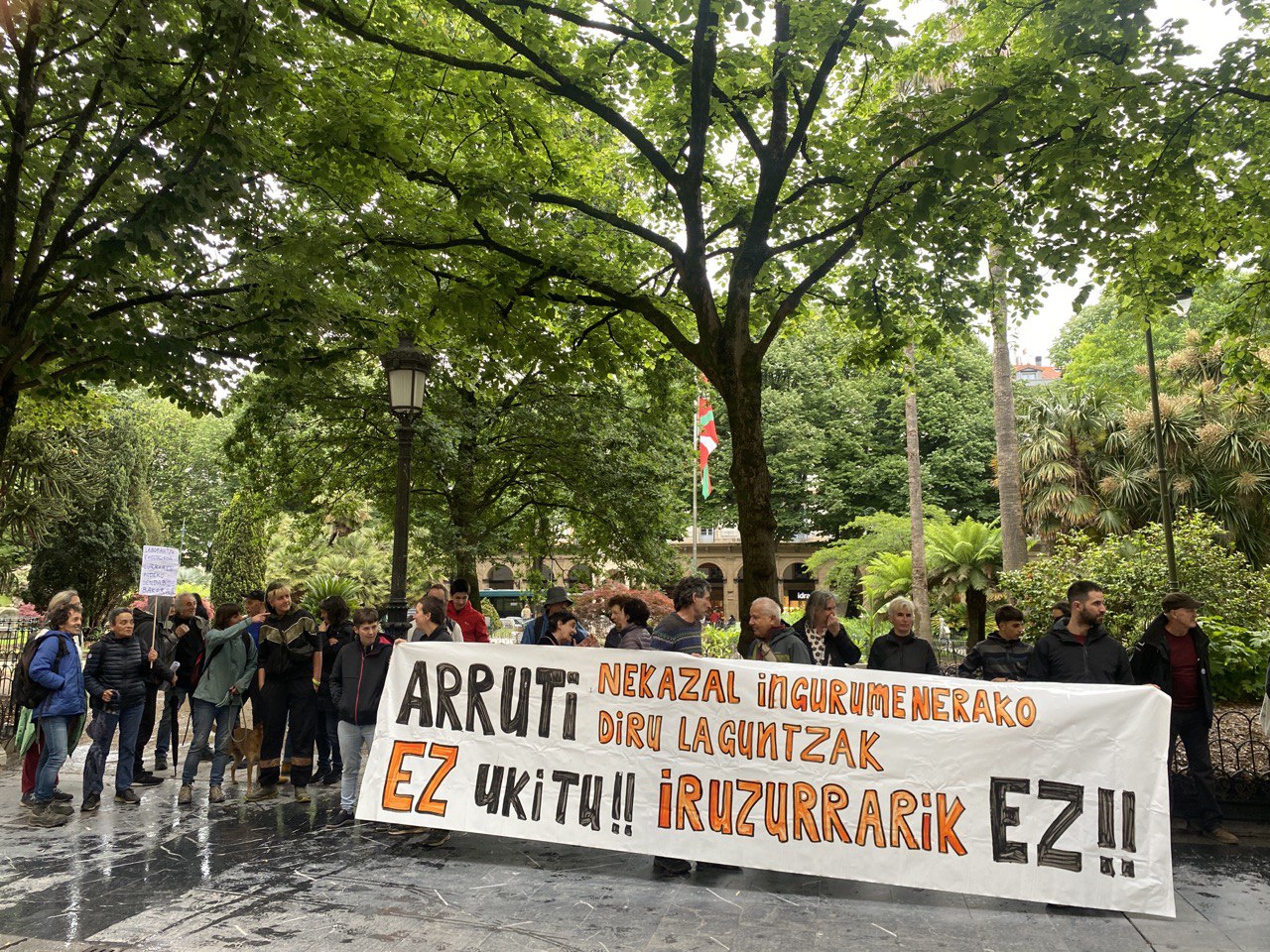Weaving community... from feminism
- Weaving communities from citizen initiatives. This is the title of the course that was held within the Summer Schools of the UPV/EHU on June 17 and 18. The Feminist Anthropology Research Groups NOR, Hartuz Party and AFIT of the University of the Basque Country have spent all of 2018 researching ways to carry out various citizen initiatives, with the collaboration of an agreement between the Provincial Council of Gipuzkoa and the UPV/EHU. During the two days, members of the research groups and popular movements announced the results. Gipuzkoa has been the object of study, but many of the reflections can be useful for the whole of Euskal Herria. We cannot collect everything, but at least we will try to summarise the main keys. In this paper we take up what was said on the table of feminism.

The general conclusions were collected in a previous interview with professors Mari Luz Esteban and María Ruiz Torrado. On this occasion, we will address the ideas highlighted in each of the areas investigated through different articles from feminism. There are four areas: feminism and gender equality; Euskalgintza; environmentalism; and struggles for migrated people and against racism. Interviews with members of the popular movements and direct observations of the initiatives have been the main source of research.
Feminism as a motor and model through collaboration and diversity
The research results were provided by UPV/EHU professor Miren Guilló Arakistain. Feminism has grown markedly in recent years, which has made it a transgression in many popular movements, according to Guilló: “Stimulus and food in the popular movement”. In his opinion, it is in the eco-alternative environment that this phenomenon can be seen most.
Research has mainly focused on the processes of women's households: “A historical claim of feminism, linked to the claim of its own spaces”. These tools are well received by the institutions, which are currently “politically correct” at a given level. However, when feminist demands go beyond, for example, when the neoliberal model is questioned, “borders appear”. The processes of women's homes have contributed. They have enabled hybrid management models between autonomous feminist movements and institutions. At the same time, this relationship with the institutions is a source of concern: How do we ensure autonomy, how do we ensure continuity, over and above changes in government? They often attract a lot of diversity, but there is a risk of “robbing” young people because of their closeness to institutions.
The organization of the physical space is usually the source of many debates, debates with many edges. Guilló took advantage of the “kitchen metaphor” to explain it. In the participatory process of a women's house, several women born abroad made a proposal to install a kitchen and a nursery. For them, they are spaces of socialization. The proposal aroused great resistance in some adult women from feminist militias: Go back to the kitchen and take care of the children? Among young women, many did not understand that the issue was so important. Behind this, it was possible to see different cultural, feminist and intergenerational perspectives regarding the same physical space, but the decisions were made through consensus, as a sign of the experience in conflict management. That's why it metaphor.
Diversity is one of the fundamental concerns of women's homes, according to the study. But when talking about diversity, the focus is on migration and origins, forgetting or ignoring other diversity variables like class, ideology or language.
Guilló highlighted five challenges: involving more people in the initiatives; working on diversity taking into account the interests and differences of all; promoting debate with the capacity to reach agreements; attracting young people; and achieving the right balances between mobilizing organizations and maintaining autonomy.
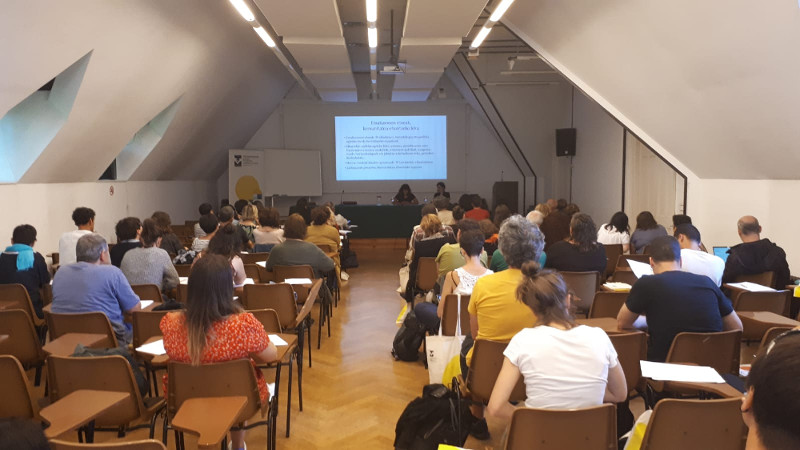
What is learned in the practice of fighting
Then Miren Aranguren Etxarte, from the Emagin research and documentation center of the Basque Country Herria Bilgune Feminist. The feminist militant uncovered some collective lessons from the struggle of the years. He recalled that in the 1980s, the debate about the political subject took centre stage. It was proclaimed “Women in the singular”, but it was then recognized that diversity prevails within it. Diversity management would be one of the contributions of the feminist movement, according to Aranguren. With the example of black feminists, Bilgune assumed the principle of triple oppression: class, gender, nation. They were then cut short and began to talk about multiple oppression, intersectionality. Aranguren warned in this regard: intersectionality is not always, everywhere and at the same time, invoking and fighting all oppression; sharing one's own, listening and gathering those of others, and from that sharing, creating common fights.
At the end of the meeting, the Emagine member made a list with three keys. Recognizing ignorance, he argued that it is essential to approach and listen to others. To pre-feminist feminists and feminists from other origins and places in the world, among others. In relation to this lack of knowledge, he also stressed the importance of humility. Finally, he opted for knowledge born from practice.
Within this practice, Aranguren dedicated a special space to diversity: “Diversity is not something that happens by itself, we work. It's nice but difficult. It's not a picture of a given moment, it's a process." It put on the table some possible strategies to make it possible. One would be decentralization. Be willing to remove the agendas, modes and references of the center, “without abandoning our”. It is important to internalize oppressions different from their own, and to do so it is interesting to ask “who is not in our spaces”.
In this search for diversity the theme of language has aroused many doubts and debates historically in feminism, Bilgune made an Euskaltzale commitment long ago, and Aranguren pointed out as a significant contribution the Euskaldunization of feminism. The shadow of this light would be the limits it has created at times. By moving around the Basque Country “to expand”, it has also fallen into a new contradiction: to resort to the hegemonic languages, rejecting other small or minority languages. From mutual knowledge, the political alliance defended weaving affectivity through joint work. Recognizing the historic debts we have as Basques, he highlighted the Gypsies and the colonized countries in this regard, denouncing the tributes and compliments being made to Elcano.
I have had days of visits, experiences and reflections. There I am, trying to make intersectionality a reality, trying to connect struggles, trying to say all the points as bertsolaris, without pounding...
From the community radio station LoRa where I work, we organized a round... [+]








